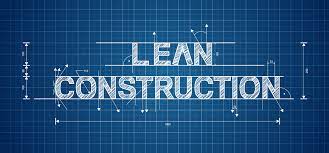Lean construction has gained significant popularity within the construction industry over the last decade. It is a method of construction that seeks to maximize value for clients while minimizing waste. The cost-saving benefits have led more and more contractors, subcontractors, and even some designers to embrace it. However, many owners have been slow to take up lean construction despite its many advantages.
This article highlights the benefits of lean construction for owners and construction teams and introduces a new type of contract software. We place particular emphasis on AI construction contract review as one of the leading tools to achieve lean construction.
What is Lean Construction?
Lean Construction is a method of delivering construction projects while focusing on four major components: creating value, minimizing waste, process and flow, and continuous improvement.
Creating Value
The first component of lean construction is creating value from the owner’s perspective early on in the process. Oftentimes, construction projects are initiated without receiving significant input from the final users of the facility. Moreover, whatever limited input owners do have can be quickly overshadowed as the project progresses and more stakeholders get involved and design plans change. As a result, owners are left with a final product that does not fully meet their expectations.
It places a focus on identifying and incorporating the owner’s perception of value throughout the life of the project. It ensures that the owner is happy with the finished product and that it fulfills its intended purpose.
Minimizing Waste
The second component of lean construction is minimizing waste. According to the Lean Construction Institute (LCI), the eight categories of waste include inventory, defects, waiting, motion, overproduction, overprocessing, transportation, and underutilization of talent.
It aims to minimize or eliminate these waste categories wherever possible. This is done by continuously identifying the potential for waste within the construction delivery process and coming up with ways to minimize or remove it. This saves both time and money for everyone involved in the project.
Process and Flow
The third component of lean construction involves a focus on process and the flow of product and information. A construction project with good flow is one that ensures that the upstream process team completes the work necessary to prevent hindrances and delays to the downstream process.
A focus on process and flow also encourages project teams to coordinate and identify ways to eliminate steps that don’t add value. It also places an emphasis on using tools and technology that allow the project to be delivered efficiently and effectively. This includes adopting BIM and holistic ePM, PMO’s, project dashboards, document management, and contract software.
By focusing on process and flow, construction teams can reduce the time needed to complete a project without sacrificing quality. Later in this article, we discuss how incorporating AI contract review software is particularly useful for process and flow.
Continuous Improvement
The fourth component of lean construction is a mentality that focuses on continuous improvement for the construction delivery process. In other words, it is the mentality to challenge the status quo of the construction industry in order to breed innovation and positive changes. By focusing on continuous improvement in the way things are done, the industry is pushed forward in a way that benefits all stakeholders.
How AI Contract Software Helps Construction Companies be More Lean
AI contract software is revolutionizing the way construction contracts are reviewed and negotiated. AI contract review maximizes efficiency by redlining a large volume of construction contracts in minutes according to a company’s playbook.
AI contract software like the one offered by BlackBoiler is helping to usher in a new level of convenience and efficiency into the world of lean construction. This cutting-edge technology leverages the power of artificial intelligence and machine learning to review and edit construction contracts with a high level of accuracy.
AI construction contract review has become particularly useful to construction teams seeking to achieve lean construction. By relying on AI software to markup new construction contracts, owners are able to reduce contract review time by 70%. In turn, owners can divert more of their attention to implementing the four tenets of lean construction: value creation, waste elimination, process and flow, and continuous improvement.
AI contract software is especially helpful for minimizing waste and achieving a better process and flow for your construction project. Using AI construction contract review, owners can identify issues at the beginning of a project rather than in the middle of it. As a result, waste is reduced and downstream processes can be carried out without delay.
AI Construction Contract Review Helps Construction Teams
According to statistics highlighted in The Economist, between 25% and 50% of construction costs can be attributed to waste and inefficiencies in labor and material control. The burden of these costs is of course placed on the owner of the construction project. Owners who want to spend less money per construction projection should focus on practicing lean construction.
Using AI contract software like BlackBoiler to practice lean construction enables owners to spend less time dealing with costly contract negotiation issues and more time creating value and minimizing waste. Owners who let AI contract software do the work for them can invest more time upfront coordinating with supply chain partners and achieving better collaboration and flow between their project teams.
Construction teams can avoid unexpected legal costs by reviewing contracts with AI, reducing the risk involved with a construction project. It also improves the negotiation process and helps uncover hidden value that may have been missed otherwise. As a result, owners can achieve better results and have greater satisfaction with the finished product.


